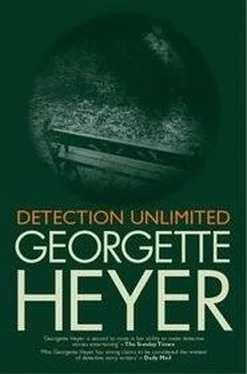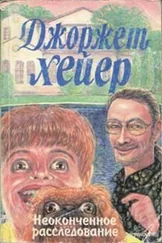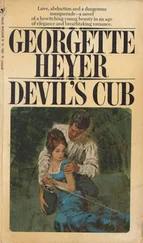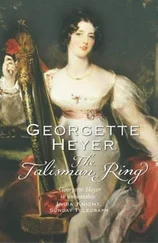Джорджетт Хейер - Detection Unlimited
Здесь есть возможность читать онлайн «Джорджетт Хейер - Detection Unlimited» весь текст электронной книги совершенно бесплатно (целиком полную версию без сокращений). В некоторых случаях можно слушать аудио, скачать через торрент в формате fb2 и присутствует краткое содержание. Год выпуска: 1953, Жанр: Детектив, на английском языке. Описание произведения, (предисловие) а так же отзывы посетителей доступны на портале библиотеки ЛибКат.
- Название:Detection Unlimited
- Автор:
- Жанр:
- Год:1953
- ISBN:нет данных
- Рейтинг книги:4 / 5. Голосов: 1
-
Избранное:Добавить в избранное
- Отзывы:
-
Ваша оценка:
- 80
- 1
- 2
- 3
- 4
- 5
Detection Unlimited: краткое содержание, описание и аннотация
Предлагаем к чтению аннотацию, описание, краткое содержание или предисловие (зависит от того, что написал сам автор книги «Detection Unlimited»). Если вы не нашли необходимую информацию о книге — напишите в комментариях, мы постараемся отыскать её.
Detection Unlimited — читать онлайн бесплатно полную книгу (весь текст) целиком
Ниже представлен текст книги, разбитый по страницам. Система сохранения места последней прочитанной страницы, позволяет с удобством читать онлайн бесплатно книгу «Detection Unlimited», без необходимости каждый раз заново искать на чём Вы остановились. Поставьте закладку, и сможете в любой момент перейти на страницу, на которой закончили чтение.
Интервал:
Закладка:
“Yes,” agreed Harbottle. “I see all that, but what I don't yet see is the point of it. It seems to me that there isn't any point at all. When you get a murder faked to look as if it was committed some time later than the actual time, it's generally done to give the murderer an alibi. I heard of a case where the shooting was done with a revolver that had a silencer fitted to it, and a few minutes later, when the murderer had established an alibi, a detonator went off, leading everyone to think that was the noise of the shot.”
“I was on that case,” said Hemingway.
“Were you, sir? Then you'll agree it isn't on all fours with this one. For one thing, no detonator makes a noise like a .22 rifle; for another, Miss Warrenby said she heard the sound of the bullet's impact; and for a third, the fake—if it was a fake—was fixed to take place when nobody had an alibi. Nobody, that is, except young Haswell, Miss Dearham, and Miss Patterdale. Well, neither Haswell nor the girl could have committed the murder an hour earlier, because they were both at The Cedars, playing tennis; and Miss Patterdale, I take it, we needn't consider. She's never been in the running. You can say that for anything we know she shot Warrenby at 6.15, or thereabouts; but she certainly didn't fire the shot Miss Warrenby heard, and if she's found out a way of faking the sound of a rifle being fired, and the impact of its bullet, the whole thing timed to go off an hour after it's been set, she must be a master-criminal, instead of a respectable maiden lady without a stain on her character. Yes, and besides all that, the apparatus would have had to have been removed, and disposed of. Aside from the fact that the whole idea of such an apparatus is impossible—”
“You needn't keep on trying to convince me Miss Patterdale didn't do it,” interrupted Hemingway. “And you needn't prove to me that the second shot couldn't have been fired automatically either, because I know that too. Even if such an apparatus were possible, the absence of just one crucial alibi rules it out. The second shot wasn't fired for that purpose. In fact, quite the reverse. It was fired so that you and I should have a nice lot of hot suspects to occupy our minds.”
The Inspector considered, deeply frowning. “Yes,” he acknowledged. “That's possible, I suppose. It certainly narrows the field, if you're right, Chief. If we're to assume that the time of the murder was between 6.00 and 6.30, we're left with Gavin Plenmeller, the Pole, Mr. Haswell, and, I suppose, the Vicar. Well, naturally, the first thing that comes to one's mind is that Plenmeller was absent from The Cedars at that time.”
“Which gives him an additional reason for wanting to make it appear that the murder was committed a good deal later on,” interpolated Hemingway.
“It does, of course. But there's a snag, sir. I'm willing to believe—though I can't say I like the idea—that at some time or other he parked a rifle where he could pick it up easily; I'm willing to believe he again parked it, after committing the murder. But what I can't believe is that he parked it a third time! He may be a cool customer, but it just isn't in human nature to leave the fatal weapon hidden in a ditch, or some such place—and there aren't any ponds he could have thrown in into—when you know the police are going to be on the spot, and searching thoroughly, within a matter of half an hour! Whoever did it must have got rid of the rifle where it wouldn't be found—which indeed he has done!—and Plenmeller didn't have enough time to do any such thing. If the chap who owns the Red Lion is to be believed, and I don't see any reason for disbelieving him, Plenmeller was in his bar-parlour round about 7.30 to 7.45. I grant you he could have reached the Red Lion from here in that time, but that's all he could have done. And limp or no limp, you aren't going to tell me he sat in the Red Lion with a rifle stuck down his trouser-leg! You'll remember, too, that the landlord told Carsethorn he'd stayed to dinner there. Where was the rifle all that time? And whose rifle was it? We know it wasn't his own!”
Hemingway regarded him with a half-smile. “You know, Horace, there's no pleasing you at all,” he said. “First, nothing will do for you but to pin this crime on to Plenmeller, and now, when it begins to look as if we might be able to do it, you turn round and argue that he couldn't have done it!”
“Now, that's not fair, Chief!” Harbottle protested. “You know very well I don't want to pin it on to anyone but the right man! All I said was that as far as appearances go he seems to me a more likely murderer than any of the others, except, perhaps, that chap Lindale. I daresay he wouldn't stick at much, but for the purposes of this argument he's out of it. I don't see how Plenmeller could have got rid of the rifle, but I do see that it wouldn't have been difficult for any one of the other three to have done so. The Vicar—mind you, I'm not saying it was him, and I don't think it was, either—the Vicar wasn't at The Cedars after 6.00, so he might have committed the murder at 6.15; and as we don't know what he was doing after he left that sick parishioner of his he might possibly have fired your second shot. Since he could have got into the grounds of Fox House from his own meadow, there would have been very little fear of his being seen; and he had all the time in the world to dispose of the rifle.”
“The only difficulty being that his rifle wasn't in his possession at the time,” said Hemingway. “However, the rifle is the stumbling-block in every instance, so I won't press that point.”
“I've nothing more to say about the Vicar. You've met him, and I haven't. What I do think is that we can't rule out Ladislas any longer. He told you that he didn't know anything about that tennis-party. That might be true, or it might not. My experience of a place like this is that everyone knows when someone's giving a party. Say he did know! All right! He shoots Warrenby, realises he's bound to be suspected, and so hangs about until he hears someone coming. He may even have sneaked along the common to watch the footpath, knowing that several people were likely to leave The Cedars by the garden-gate. He's got a motor-bike; his landlady was out that evening: what was to stop him driving off anywhere he pleased—perhaps to the river—and getting rid of the rifle?”
“What rifle?” asked Hemingway, all polite interest.
“I don't know. One of those we haven't checked up on, probably.”
“What made him wait for three-quarters of an hour before shooting Warrenby? We know he was seen turning into Fox Lane at 5.30; if Crailing's to be believed, Father Time turned up at the Red Lion at about 6.30, which means that he must have heard the shot he did hear at about 6.15, or a few minutes earlier. I agree that the murderer didn't want to have to do the job in a hurry, but three quarters of an hour seems to me a long time to wait.”
“Well, from your description of him, he sounds a temperamental, nervy sort of a chap,” offered the Inspector. “Perhaps he couldn't make up his mind to do it straight off.”
“Rotten!” said Hemingway. “If that's the way it was, and he'd hung about, trying to summon up enough resolution to pull the trigger, he'd have gone off home without pulling it at all!”
“There might be some other explanation.”
“There might. What happened to his motor-bike all this time? Did he leave it standing in the lane for nearly two hours, just to make sure anyone that happened to have passed that way would know he must be somewhere around?”
“Of course not. He might have hidden it amongst the bushes on the common. Taken it up the path that goes to the seat where we found Biggleswade.”
“Talk sense! You try and hide a motor-bike amongst a lot of bushes! That old sinner would have spotted it like a flash!”
Читать дальшеИнтервал:
Закладка:
Похожие книги на «Detection Unlimited»
Представляем Вашему вниманию похожие книги на «Detection Unlimited» списком для выбора. Мы отобрали схожую по названию и смыслу литературу в надежде предоставить читателям больше вариантов отыскать новые, интересные, ещё непрочитанные произведения.
Обсуждение, отзывы о книге «Detection Unlimited» и просто собственные мнения читателей. Оставьте ваши комментарии, напишите, что Вы думаете о произведении, его смысле или главных героях. Укажите что конкретно понравилось, а что нет, и почему Вы так считаете.








